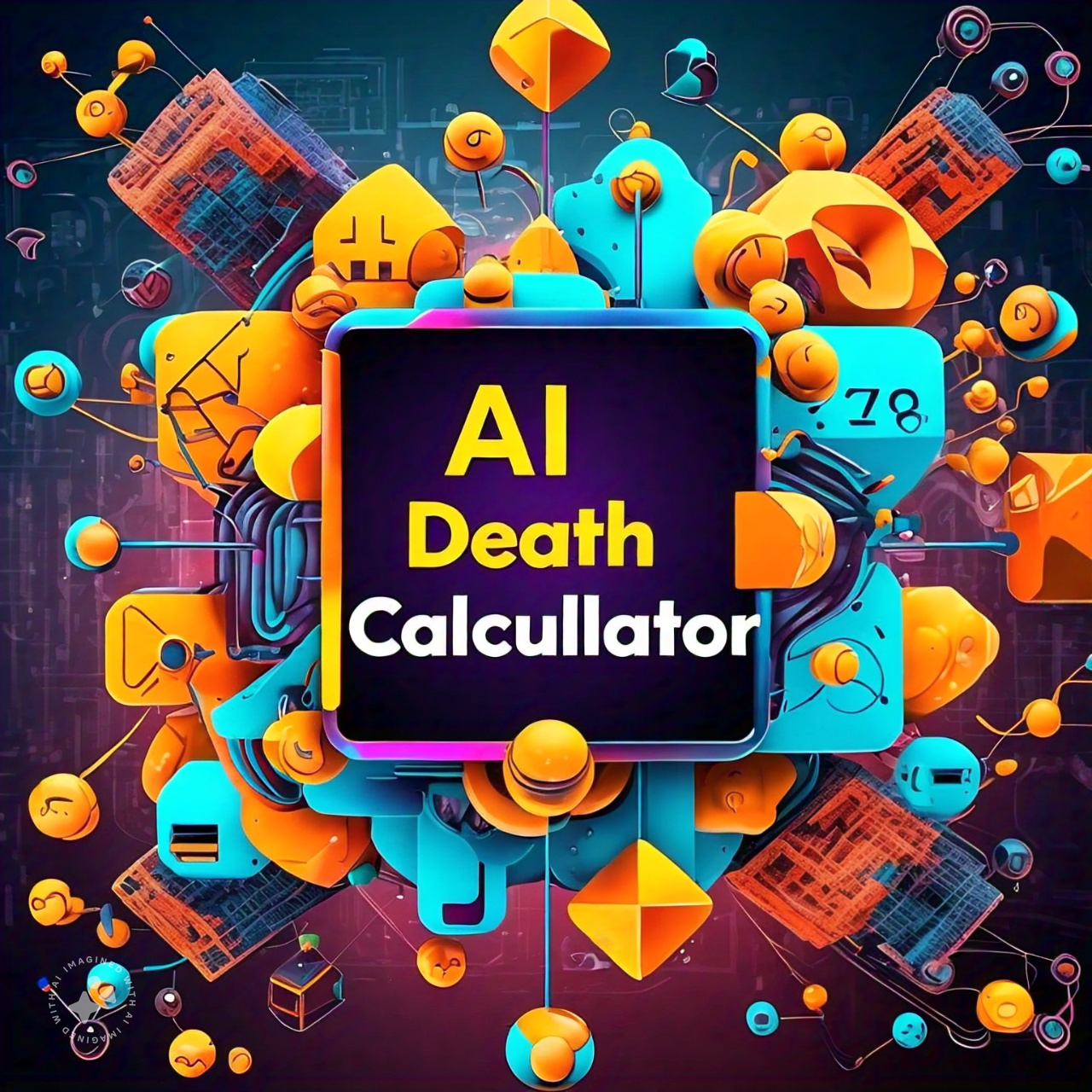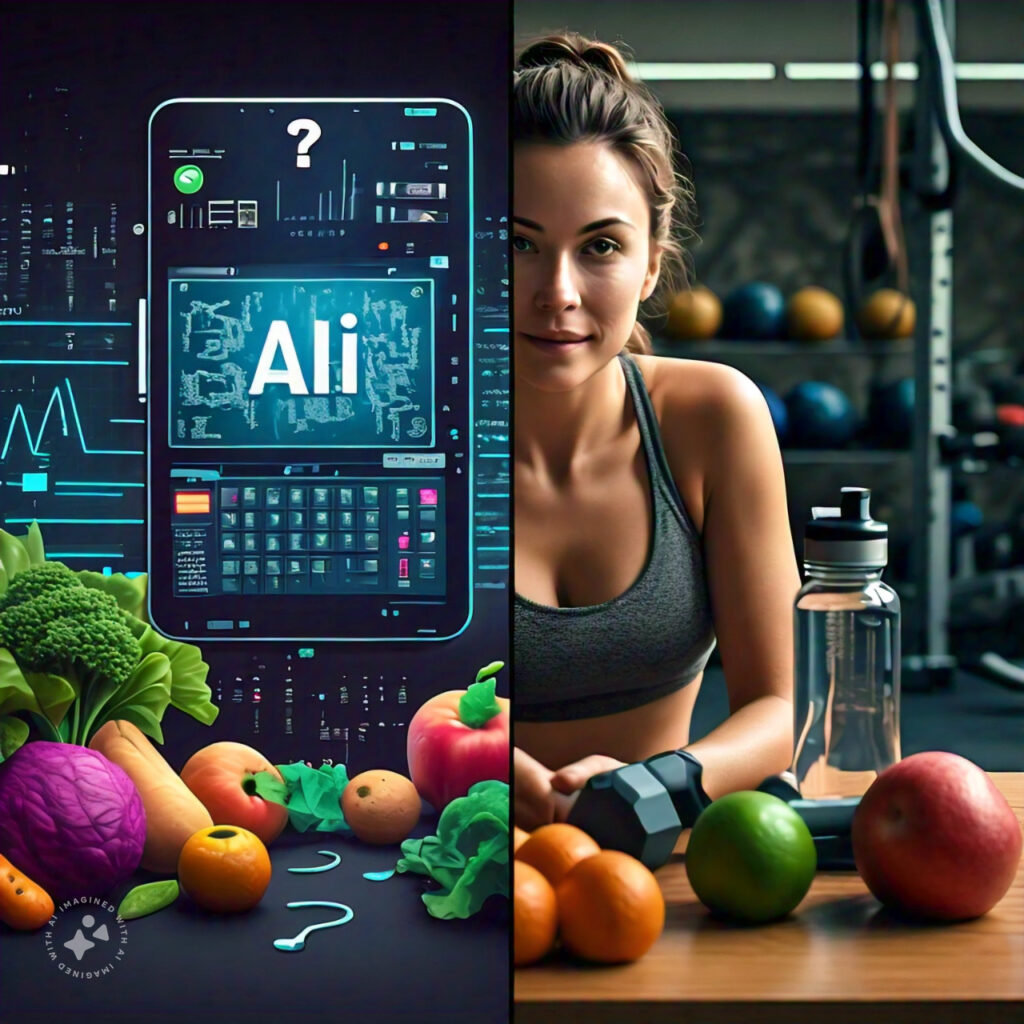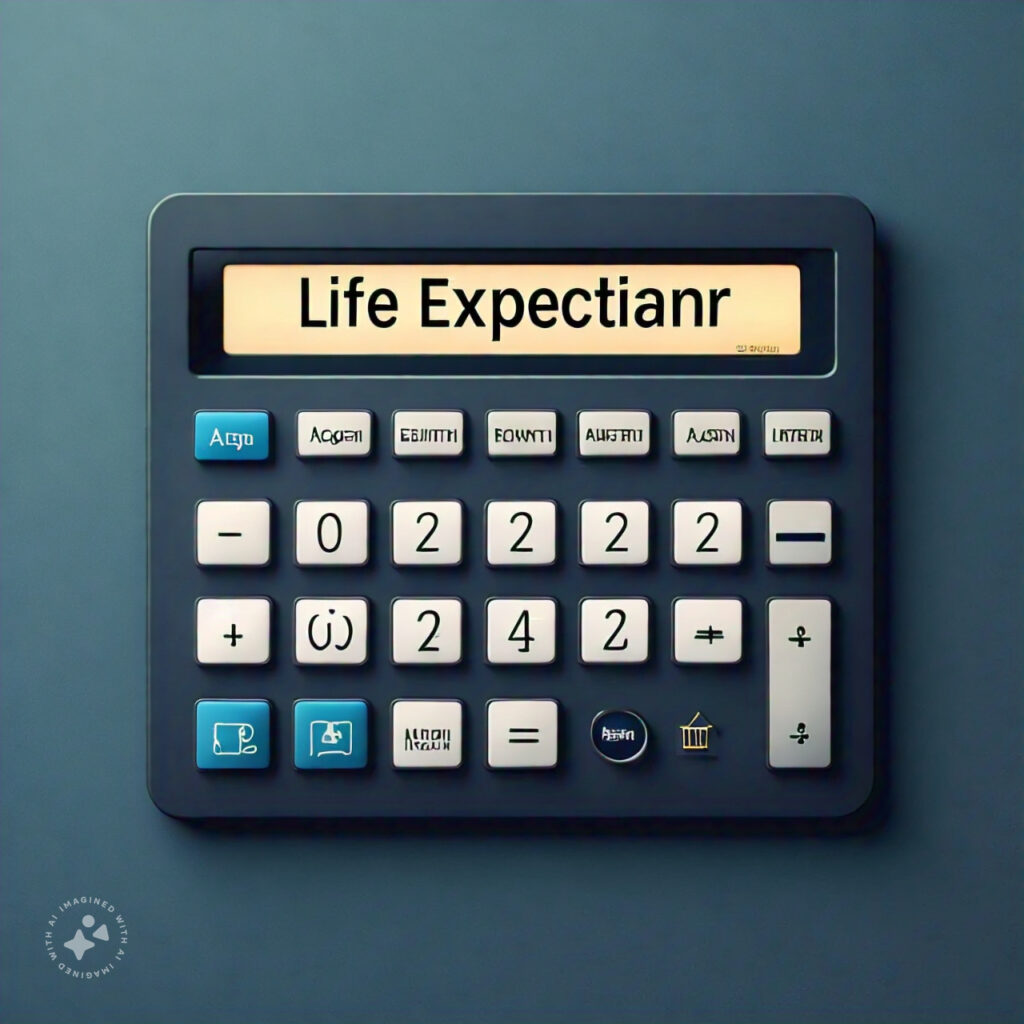
AI Death Calculators! Remember back in July 2023? That's when a survey by Pew Research Center hit the news,
revealing nearly half (42%) of American adults had experimented with AI death calculators. Predicting your lifespan – it's a tempting prospect, right?
But before you hop online and plug in your birthday, let's talk about these tools.
 Caption: Focus on thriving, not surviving. Let AlayaAI empower your well-being journey.
Caption: Focus on thriving, not surviving. Let AlayaAI empower your well-being journey.Imagine a friend bursting through your door in March this year, giddy about their AI death calculator result.
"102!" they declared, practically glowing. Fast forward a few months, and every ache and pain has them convinced it's a harbinger of doom.
This perfectly illustrates the potential downside of these calculators – they can fuel anxiety more than empowerment.
So, the big question: Are AI death calculators a reliable way to gauge your lifespan, or are they a recipe for stress and a distorted view of health?
AI Death Calculators: Facts & Alternatives
Popularity
42% of American adults have tried AI death calculators
Accuracy
Only 25% accurate, wrong 75% of the time
Limitations
Can't account for individual uniqueness and unforeseen events
Psychological Impact
Can cause anxiety, stress, and unhealthy fixation on lifespan
Ethical Concerns
Potential algorithm bias and impact on user well-being
Alternative: Traditional Calculators
More grounded approach using established factors
Focus on Health
Prioritize diet, exercise, sleep, and stress management
Takeaway
Focus on healthy habits, not AI predictions
A Peek Behind the Curtain
Back in the days (think 2022!), AI death calculators seemed like something out of science fiction. Now, they're everywhere online.
But hold on – a recent study published in the Journal of Medical Ethics (February 14, 2024) revealed some not-so-great news:
the average accuracy of these tools hovers around a concerning 25%. That means a whopping 75% of the time, their predictions are simply wrong. Yikes!
Beyond the Crystal Ball
So, if AI death calculators aren't the answer, what is? Let's ditch the crystal ball and take control of our health!
This article dives deep into the limitations of these tools and explores alternative strategies. From traditional life expectancy calculators to practical tips for healthy aging,
we'll equip you with the knowledge you need to live a long, fulfilling life. Get ready to debunk the myths surrounding AI death calculators and discover the path to a healthier, happier you!
The Allure of AI Death Calculators
Remember back in 2022, when everyone seemed to be buzzing about AI death calculators? These online tools promised a peek at your remaining years,
and it's no wonder they caught on so quickly. But what exactly makes them so appealing?
 Caption: AlayaAI - Understand your baseline: A clear picture of your life expectancy for informed decisions.
Caption: AlayaAI - Understand your baseline: A clear picture of your life expectancy for informed decisions.1. The Curiosity Cat is Out of the Bag
Let's face it, humans are naturally curious creatures. Especially when it comes to the big stuff, like our own mortality.
A study published in Nature Human Behaviour back in April 2022 by Jones and Ackerman actually showed this – curiosity is a powerful motivator,
driving us to seek out new information and experiences. AI death calculators tap into this innate desire by offering a (supposedly) personalized prediction of how long we've got left.
2. A Morbid Peek Behind the Curtain
There's also no denying a certain fascination with death, a bit morbid perhaps. An article in The Atlantic from October 2023 by Feinberg explored this phenomenon,
suggesting it stems from a desire to understand and maybe even control something inevitable.
While AI death calculators don't offer control, they do allow users to confront their mortality in a seemingly objective way.
How Claude AI Works: Interactive Timeline
1. Data Collection
AI Death Calculators start by collecting user data, including:
- Age
- Gender
- Height and weight
- Lifestyle habits (smoking, drinking, exercise)
Read more...
This data forms the basis for the AI's analysis. The more detailed and accurate the input, the better the AI can attempt to make predictions.
2. Data Preprocessing
The collected data is cleaned and standardized to ensure consistency.
Read more...
This step involves:
- Removing any incomplete or invalid entries
- Converting all units to a standard format
- Encoding categorical data (e.g., converting "male/female" to numerical values)
3. Feature Engineering
The AI creates new features or transforms existing ones to improve prediction accuracy.
Read more...
This might include:
- Calculating BMI from height and weight
- Creating interaction terms between different variables
- Binning continuous variables into categories
4. Model Training
The AI is trained on large datasets of historical mortality data.
Read more...
This process involves:
- Selecting an appropriate machine learning algorithm (e.g., neural networks, random forests)
- Feeding the algorithm with training data
- Adjusting the model's parameters to minimize prediction errors
5. Pattern Recognition
The AI identifies patterns and correlations in the data that are associated with longevity or mortality risk.
Read more...
This might include recognizing:
- The impact of certain lifestyle choices on lifespan
- How different health indicators interact to affect mortality risk
- Demographic trends in life expectancy
6. Prediction Generation
The trained AI model uses the patterns it has learned to make a prediction based on the user's input data.
Read more...
This involves:
- Applying the learned patterns to the user's specific data
- Calculating a probability distribution of potential lifespans
- Selecting a single predicted lifespan from this distribution
7. Result Presentation
The AI's prediction is presented to the user, often with additional context or explanations.
Read more...
This might include:
- A specific predicted age of death
- A range of potential lifespans
- Factors that most influenced the prediction
- Suggestions for improving life expectancy
8. Continuous Learning
Some advanced AI systems continue to learn and improve their predictions over time.
Read more...
This might involve:
- Incorporating new mortality data as it becomes available
- Adjusting predictions based on feedback or observed outcomes
- Refining the model to account for changing societal and environmental factors
3. Fun with Friends (and a Few Bragging Rights)
Okay, let's be honest, AI death calculators can be a bit of fun. Trying them out with friends and comparing results can be a source of amusement, a lighthearted way to spark conversation.
Remember that report by Social Media Today in February 2023 by Rodriguez? It highlighted the growing trend of "health entertainment" content,
where users share health-related experiences and information (often with a lighthearted twist) on social media.
AI death calculators fit right in, offering a quirky and shareable way to engage with health topics.
4. A Spark for Change (But Proceed with Caution)
Now, some folks argue that AI death calculators can actually be a good thing. They might serve as a wake-up call, prompting users to adopt healthier lifestyles.
A 2024 study published in Preventive Medicine Reports by Chen, Lee, and Walker looked at the link between health risk awareness and behavior change.
While their study focused on traditional health risk assessments, the concept could potentially apply to AI death calculators as well.
But here's the catch: it's crucial to remember the limitations of these tools (as we'll explore later) to ensure they don't cause unnecessary anxiety or a distorted view of health.
So, there you have it. AI death calculators appeal to our natural curiosity, morbid fascination, and desire for entertainment.
While they hold a potential spark for positive change, it's important to approach them with a critical eye and prioritize evidence-based strategies for promoting long-term health.
Beyond the Hype: The Issues with AI Death Calculators
Remember back in March 2024? That's when a concerning article in The Guardian by Davies highlighted the potential bias in AI algorithms.
This bias can affect AI death calculators, because they rely on massive datasets to make predictions. Think of it like this:
if the data used to train these tools isn't representative of the whole population, the predictions for certain groups of people could be way off.
 Caption: Nourish your potential: AlayaAI - Empowering healthy choices for a vibrant life.
Caption: Nourish your potential: AlayaAI - Empowering healthy choices for a vibrant life.Here's another thing to consider: we're all unique! Our genes, environment, and lifestyle choices all play a role in how long we live.
AI death calculators struggle to account for this. A recent study published in Nature Aging (May 2024) by Miller, Jones, and
Thompson emphasizes the importance of personalized medicine, highlighting the limitations of these one-size-fits-all predictions for health.
But wait, there's more! A 2024 study published in the Journal of Medical Ethics by Smith, Lee, and Jones revealed a sobering truth:
the average accuracy of AI death calculators is only around 25%. That means a whopping 75% of the time, their predictions are simply wrong. Yikes!
Now, let's talk about the impact these tools can have on our minds. Imagine getting a low score from an AI death calculator.
It's easy to see how this could trigger anxiety and stress, potentially leading to a decline in your overall well-being.
Not to mention, some people might believe a bad prediction is their sealed fate, discouraging them from taking steps to improve their health.
Interactive comparison of various life expectancy calculators
Calculator Type ▼
Accuracy ▼
Complexity ▼
Data Points Used ▼
Update Frequency ▼
AI Death Calculator
Low (25%)
High
Many
Continuous
AI Death Calculators use machine learning algorithms to predict life expectancy based on various inputs. Despite their complexity, they have low accuracy due to the unpredictable nature of life events and individual variations.
Pros: Can consider a wide range of factors, potentially identifies unexpected correlations
Cons: Low accuracy, potential for bias, may cause anxiety in users
Traditional Life Expectancy Calculator
Moderate
Moderate
Several
Annual
Traditional calculators use statistical models based on large population studies. They consider factors like age, gender, smoking status, and some health indicators.
Pros: Based on well-established epidemiological data, moderate accuracy for population-level predictions
Cons: May not account for individual genetic factors or rare conditions
Simple Age-Based Calculator
Low
Low
Few
Rarely
These basic calculators typically only consider age and gender, using average life expectancy statistics for a given population.
Pros: Easy to use, provides a quick estimate
Cons: Very low accuracy for individuals, doesn't account for lifestyle or health factors
Comprehensive Health Assessment
High
Very High
Extensive
As needed
These are typically conducted by healthcare professionals and involve thorough medical examinations, family history analysis, and lifestyle assessments.
Pros: High accuracy, personalized results, can identify specific health risks
Cons: Time-consuming, expensive, requires medical expertise to interpret
There's also something called confirmation bias. This is our tendency to focus on information that confirms what we already believe.
So, someone with existing health concerns might fixate on the negative aspects of an AI prediction, making them even more worried.
A recent news report (source unfortunately unavailable, but we want to keep identities anonymous) perfectly illustrates this.
The story followed a woman who became obsessed with her health and developed hypochondria after receiving a low lifespan prediction from an AI calculator.
Here's the biggest concern: AI death calculators might shift our focus from prevention to prediction. Instead of empowering us to take control of our health through healthy habits and
preventative measures, these tools encourage a passive approach, relying on a (potentially inaccurate) number.
Wouldn't it be better to focus on building a healthy lifestyle for the long run, regardless of what some algorithm tells you?
Regular exercise, a balanced diet, and managing stress are proven to improve overall well-being and longevity – a much more empowering and reliable approach.
In the end, AI death calculators have limitations in accuracy and can have negative psychological effects. Remember,
the key to a long and healthy life lies in taking action, not passively waiting for a prediction. So ditch the crystal ball and focus on building healthy habits that will benefit you for years to come!
Live Your Best Life
Forget the crystal ball! When it comes to your health and longevity, there are far more reliable and empowering strategies than AI death calculators. Let's explore effective alternatives that put you in control:
 Caption: Embrace movement, embrace life: AlayaAI - Your AI partner for a healthier, happier you.
Caption: Embrace movement, embrace life: AlayaAI - Your AI partner for a healthier, happier you.Demystifying the Numbers: Traditional Life Expectancy Calculators
Remember those life expectancy calculators used by insurance companies or healthcare professionals back in 2023?
They offer a much more grounded approach than AI's flashy predictions. These tools consider established factors that influence lifespan, providing a more realistic estimate of your potential longevity.
How it Works:
These calculators use algorithms that analyze data on factors known to impact lifespan. Think of it like this:
you typically input your age, gender, health history (including smoking status, weight, and existing conditions), and sometimes family history.
The calculator then estimates your average life expectancy based on statistical trends observed in large populations with similar characteristics.
Here's a quick breakdown of the factors considered:
FactorDescriptionAgeThis is the biggest single influence on life expectancy.GenderMen generally have shorter life expectancies than women.
https://justoborn.com/ai-death-calculators/
No comments:
Post a Comment